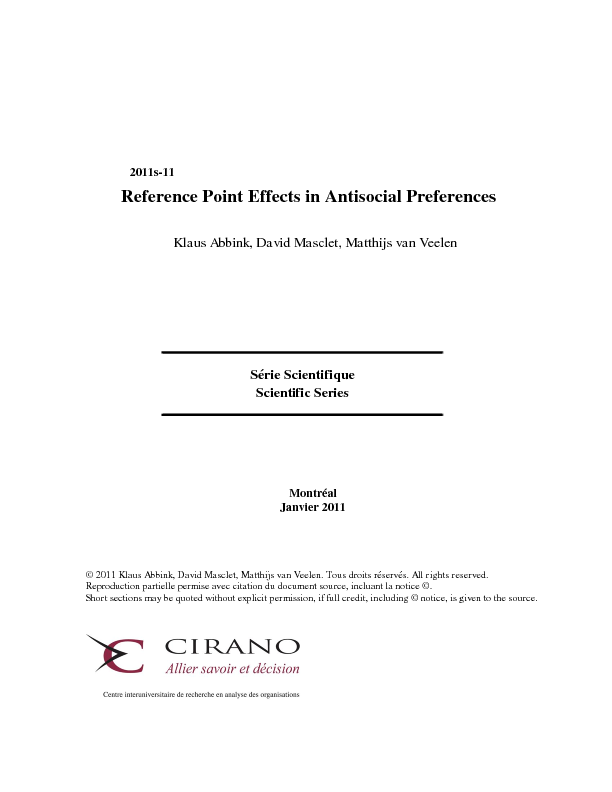Reference Point Effects in Antisocial Preferences
We study antisocial preferences in simple money-burning tasks. A decision maker can choose whether or not to reduce another person's payoff at an own cost. We vary across tasks the initial endowment of the decider and the victim. We find that most conventional expectations are refuted: Subjects burn more when inequality is advantageous than when it is disadvantageous. Equitable distributions are particularly prone to destruction. These effects are reversed, however, when the equivalent tasks are framed as creation instead of destruction.
[ - ]




